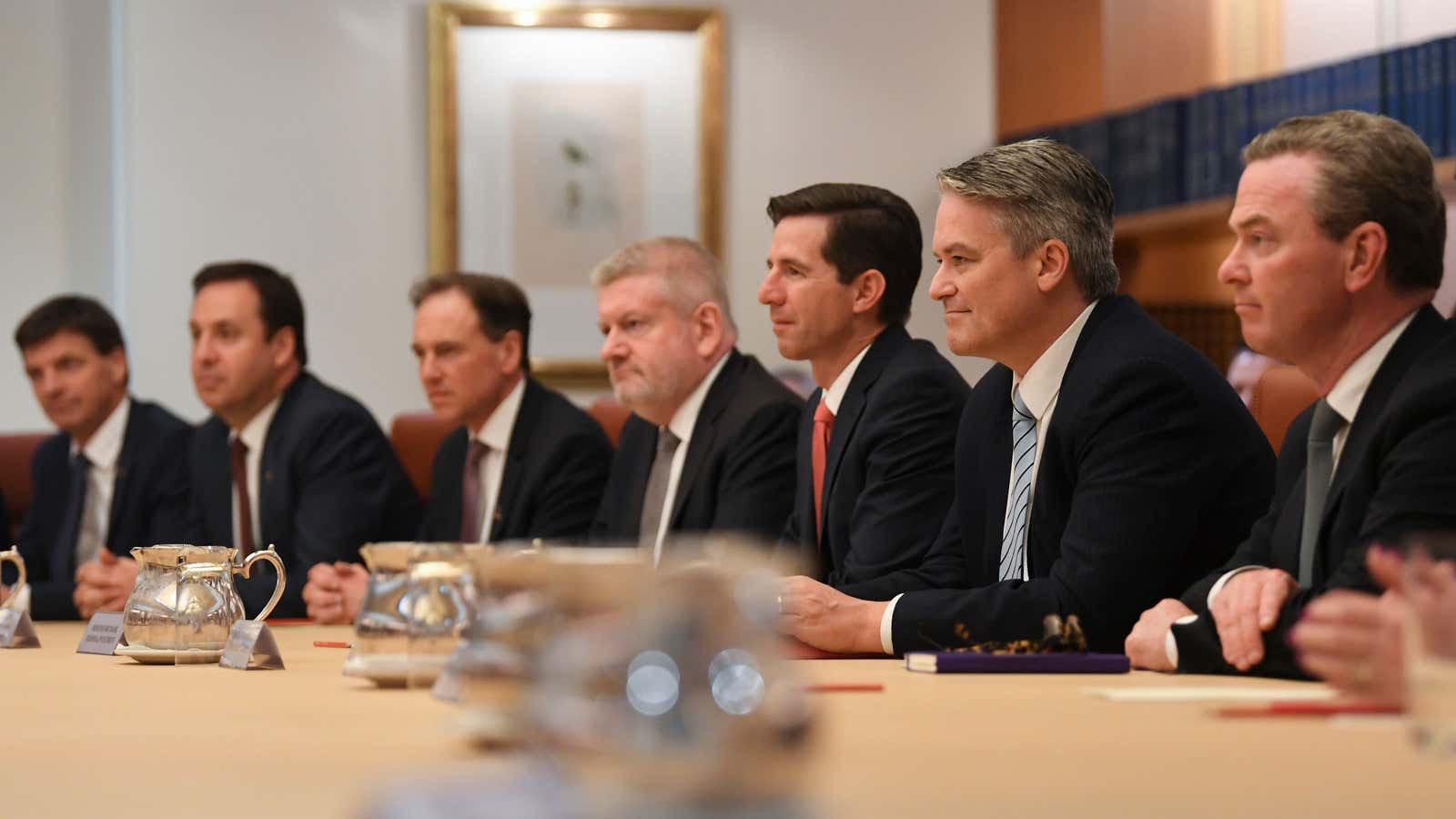Australia ranks just 50th in the world when it comes to female representation in parliament—and it just lost another woman lawmaker.
Days after a party coup ousted Malcolm Turnbull from power and installed Scott Morrison as prime minister, lawmaker Julia Banks—a supporter of Turnbull—announced today (Aug. 29) that she would quit at the next election, citing “bullying and intimidation” within the Liberal party during last week’s political machinations.
Banks wasn’t the only woman who stepped down from her job in the aftermath of the recent political turmoil—Julie Bishop, Australia’s highest ranking female politician, also resigned as foreign minister after she lost the internal party vote to replace Turnbull as prime minister, though she will remain a member of parliament. It was not the first time Bishop, a Liberal party veteran, had been passed over for the role of party leader.
In her statement, Banks said:
I am not giving up the fight for gender equality. The scourge of cultural and gender bias, bullying and intimidation continues against women in politics, the media, and across businesses. In anticipating my critics saying I’m “playing the gender card” – I say this. Women have suffered in silence for too long and in this last twelve months the world has seen many courageous women speak out. To young women and men reading this announcement – I say I’ve only ever aspired to inspire. If I’ve inspired any one of you to have leadership courage – that will sustain me.
Banks’s farewell will come as no surprise to anyone who has followed Australian politics in recent years and witnessed the not infrequent instances of sexism that have been on display in parliament. Most notable of these was prime minister Julia Gillard’s smackdown of opposition leader Tony Abbott in a parliament speech, where she said: “[I]f he wants to know what misogyny looks like in modern Australia, he doesn’t need a motion in the House of Representatives, he needs a mirror.” Abbott, among other actions, had catcalled Gillard across the chamber and told her to “make an honest woman” of herself.
In 2011, a male lawmaker meowed at then-finance minister Penny Wong as she was making a speech in parliament. “The blokes are allowed to yell, but if a woman stands her ground you want to make that kind of comment, it’s sort of schoolyard politics, mate,” Wong retorted.
The Liberal party evidently has a problem with female representation, making up just 22% of its members in parliament, compared to 45% for the opposition Labor party, according to calculations by broadcaster ABC. Australia’s female-representation problem looks even more dire when compared to other countries in the world—with just 28.7% of its legislature made up of women in 2017, it ranks worse than countries like Zimbabwe and Sudan, according to World Bank data.
